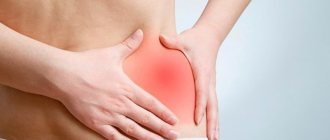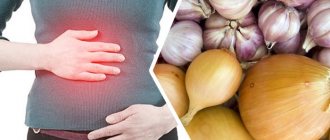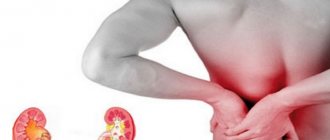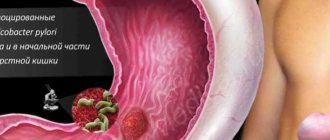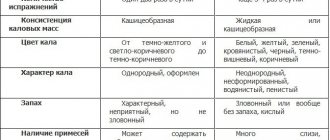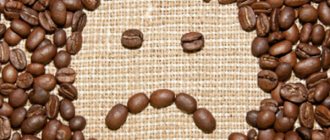A relatively safe alcohol dose for the gastrointestinal tract is 125 grams per week with two to three day breaks. For women - 60 grams, which is half as much. But, if you do not take into account people who do not drink at all, it is rare to meet such conscious individuals who strictly adhere to the permissible volumes. It is for this reason that the number of operations for resection (partial truncation) of the liver, stomach, and intestines in Russia is progressively growing. And there are more and more situations when even such a measure will no longer help a person. Each case has its own aggravating factor: heredity, age, weak immunity, professional specifics, but the main striking force on the gastrointestinal tract within our country is still alcohol.
How does an esophageal burn manifest itself?
An alcohol burn to the esophagus, and therefore the stomach, can be observed if a liquid containing ethyl alcohol is ingested. Even a drink within 20 degrees has a negative effect on the mucous membrane, because the absorption process is sharply reduced and ethanol is retained in the stomach and corrodes the walls. Alcohol around 70% ABV causes serious damage. This is not only medical alcohol, but also tinctures, which are sold directly in pharmacies.
The first signs of an alcohol burn are:
- The appearance of dizziness.
- Weakness in the body.
- Loss of taste.
- Pain in the esophagus.
- Pain in the abdomen.
- Feeling nauseous.
- Vomit.
If you examine the mucous membranes of the oral cavity, you can detect a white coating, swelling and redness.
High-strength alcohol in large quantities can provoke corrosion of the walls of the stomach and esophagus, which can have serious consequences.
When alcoholic drinks enter the body, it is the digestive system that first meets it and takes the hit. Ethyl alcohol molecules instantly affect the mucous membrane and provoke the appearance of small ulcers, capillary bleeding and death of blood vessels.
After drinking strong alcohol, the symptoms of an esophageal burn appear most clearly:
- There is swelling of the tongue and lips.
- Swelling of the pharynx and larynx provokes shortness of breath even at rest.
- Hoarseness appears as the vocal cords suffer.
- There are disturbances in the process of swallowing.
- Vomiting.
If vomiting is observed, then an admixture of blood and pieces of mucous membrane can be found in the vomit.
Swelling of the pharynx and larynx provokes shortness of breath
If, when such symptoms appear, measures are not taken and the person is not sent to the hospital, then serious complications will arise.
First aid
Most deaths from alcohol poisoning are associated with delayed medical care. If you suspect severe intoxication, you should urgently call a doctor.
Before his arrival:
- do not leave the person alone, even if he has fallen asleep or lost consciousness. If he starts to feel sick, he may choke on the vomit;
- It is better if the patient stays awake; you should not let him fall asleep;
- if he is vomiting but cannot get up, place him on his side to prevent him from choking;
- if there are no problems with swallowing, you can give a sorbent. This will reduce the absorption of alcohol from the stomach.
What not to do:
- give a person to drink alcohol, coffee, milk, etc.;
- send him under a cold or contrast shower or into the bath;
- try to induce vomiting, rinse the stomach (danger of internal bleeding);
- force him to walk, stand on his feet (it’s better to sit him down or lay him down comfortably).
In cases of alcohol poisoning, people most often die due to breathing problems. It is associated with the accumulation of vomit in the oral cavity and trachea. If a person is not breathing, is wheezing, or wheezing, the upper respiratory tract needs to be cleared. To do this, place him on his side, and remove the vomit with his fingers without pushing it deeper. If the victim is unconscious, he should lie so that the tongue does not fall into the larynx.
The severity of damage to the esophagus by alcohol
Depending on the amount drunk, the strength of the drink and the frequency of alcohol abuse, a burn to the esophagus can have varying degrees of severity:
- 1st degree is the easiest. Ethyl alcohol affected the surface layer of the organ. Slight redness, swelling and tenderness can be diagnosed. If you stop drinking alcohol at this stage, the symptoms disappear after 10-14 days, and no special treatment is even required.
- The average degree is the 2nd. Destructions affect the mucosa and smooth muscle fibers underneath. Swelling can develop so severe that the lumen of the esophagus is blocked and the passage of food becomes impossible. Upon examination, the doctor discovers ulcers, which after some time are covered with a layer of blood protein - fibrin. If there is no infection, the healing process takes about a month.
- Grade 3 is considered the most severe. The burn affects all the walls of the esophagus and even spreads to neighboring organs. Not only local phenomena are observed, but also symptoms of intoxication in the form of a state of shock. Even after healing, and this will take at least 3 months, and sometimes a couple of years, scars remain.
The more severe the degree of damage, the longer the healing period and the more complex the treatment.
Help with alcohol burns
If there is a burn to the stomach from alcohol on the face, then the victim urgently needs to receive help. It is as follows:
- The first step is to wash off traces of alcohol-containing substances. This is done by inducing vomiting by drinking large amounts of water.
- Take the person to the hospital.
Basic treatment for burns consists of the following procedures:
- Taking medications that have an analgesic effect. Suitable: “Promedol”, Analgin.”
- Using medications that can relieve esophageal spasm. Atropine will cope with this effectively.
- Means for normalizing the functioning of the cardiovascular system.
- Prevent exposure of the body to toxic substances.
- Help the patient cope with shock. For this purpose, Prednisolone injections and saline solutions administered intravenously are used.
- To avoid complications and infection, it is recommended to take antibacterial agents, for example, Ampiox.
- Relanium will help calm the victim.
- Dehydration of the body requires the installation of a drip to restore water-salt metabolism.
In the first time after a burn, it is recommended to take medications that reduce the secretion of gastric juice. Famotidine and Omeprazole are suitable.
For a victim of an alcohol burn for the first time, it is recommended to take any vegetable oil; it will speed up the healing process. Eating is not recommended.
For severe burns, gastroendoscopy is not performed at first to avoid additional injury to the walls of the esophagus.
A common consequence of a burn is narrowing of the esophagus. To avoid this, doctors use the bougienage procedure. It consists of expanding the lumen of the organ using probes made of elastic material. Each time the diameter of the probe increases. The procedure can begin no earlier than 5-7 days after the esophagus burn and continue for several months after healing.
It is important that the patient understands during treatment that only complete exclusion of alcohol from his life can guarantee successful therapy. Even 100 grams of an alcoholic drink will reduce all the efforts of doctors to zero.
Causes of gastritis from alcohol
Alcoholic drinks containing 20% or more ethanol have the strongest negative effect on the gastrointestinal mucosa. This means:
- cognac;
- vodka;
- liquor, etc.
Stomach cells have the ability to heal themselves, so drinking does not always lead to gastritis. Much depends on the frequency of ethanol intake, the strength and volume of the formulations used. If alcohol is consumed rarely and a person has a predisposition to developing gastrointestinal diseases, acute gastritis will most likely develop. With prolonged and frequently repeated binges, a chronic form of the disease is often diagnosed.
The likelihood of painful symptoms also depends on whether the following risk factors are present:
- use of non-steroidal anti-inflammatory drugs;
- activation of pathological activity in the body of the bacterium Helicobacter pylori;
- frequent consumption of too spicy, hot food;
- presence of duodenogastric reflux.
Treating burns with folk remedies
Recipes from traditional healers can also provide effective assistance in treating the effects of drinking alcoholic beverages, but before using them you should definitely consult a doctor. The first step is to relieve the acute symptoms of the burn, and then you can use traditional medicine for a speedy recovery.
We can recommend the following effective recipes:
- Prepare a decoction based on medicinal chamomile and oak bark and use for rinsing several times a day. Chamomile has anti-inflammatory and antiseptic properties, and oak has astringent properties, which will speed up the restoration of damaged mucous membranes.
- The second recipe is this: take 1 tbsp. l. violets and add 200 ml of boiling water, leave for 2 hours and use for rinsing.
- Another effective recipe based on milk and honey. Dilute a tablespoon of honey in a glass of warm milk and drink in small sips at a time.
- Prepare flax seed tincture using 12 tablespoons of seeds and 1 liter of water. Take 50 g three times a day. During the infusion process, the seeds release a viscous substance that will envelop the walls of the stomach and esophagus, promoting their restoration.
Successful treatment of an esophageal burn with alcohol is impossible without following a special diet. Doctors recommend:
- Eliminate baked goods and brown bread from your diet.
- The diet should not include spicy, salty, or sour foods, so as not to injure the mucous membrane.
- Eat food often, but in small portions.
- In the morning after waking up, take a tablespoon of sea buckthorn or olive oil.
- Eliminate carbonated drinks, replacing them with herbal infusions, tea, and milk.
A combination of medications and traditional medicine recipes will give good results, and recovery will take less time.
Treating a burn to the esophagus with folk remedies
Consequences of a burn
If you do not take urgent measures after receiving a burn to the esophagus or stomach from alcoholic beverages and do not undergo a course of therapy, complications cannot be avoided. Most often diagnosed:
- Inflammation of the mucous membrane of the esophagus and stomach.
- Due to the formation of scar tissue, obstruction of the esophagus is formed.
- Formation of a through hole in the stomach.
- Fistulas in the trachea and bronchi due to perforation and adhesion of the esophageal tube to the bronchi.
- Pneumonia, which leads to blockage of the airways.
- Oncology.
The prognosis for a patient with a burn from alcoholic beverages depends on the severity of the injury. Grades 1 and 2 respond well to treatment, but grades 3 and 4 can end in failure for a person, even death.
Content:
- Causes of gastritis from alcohol
- Symptoms
- How the treatment works 3.1. Diet is the main condition for recovery 3.2. Medications 3.3. Physiotherapeutic procedures
- Complications that can develop with advanced gastritis
Gastritis is a pathological condition in which inflammation and degeneration of the gastric mucosa occurs. The mucous membranes cover the entire surface of the organ and play a major role in the course of digestion processes. It is their glands that are responsible for the production of gastric juice, hydrochloric acid, pepsin, lipase, mucus, hormone-like substances, and bicarbonate. All these components are needed in certain quantities so that fats and proteins are quickly broken down and absorbed, and metabolic reactions proceed normally.
Under the influence of high doses of alcohol, the mucous membrane begins to produce the listed components in the wrong ratio. Then the functioning of the stomach is disrupted and the disease develops.
Gastritis after alcohol can occur in two forms:
- acute;
- chronic.
It is important to prevent the disease from becoming chronic. To do this, you must promptly seek qualified medical help and completely stop drinking any alcohol-containing drinks.

